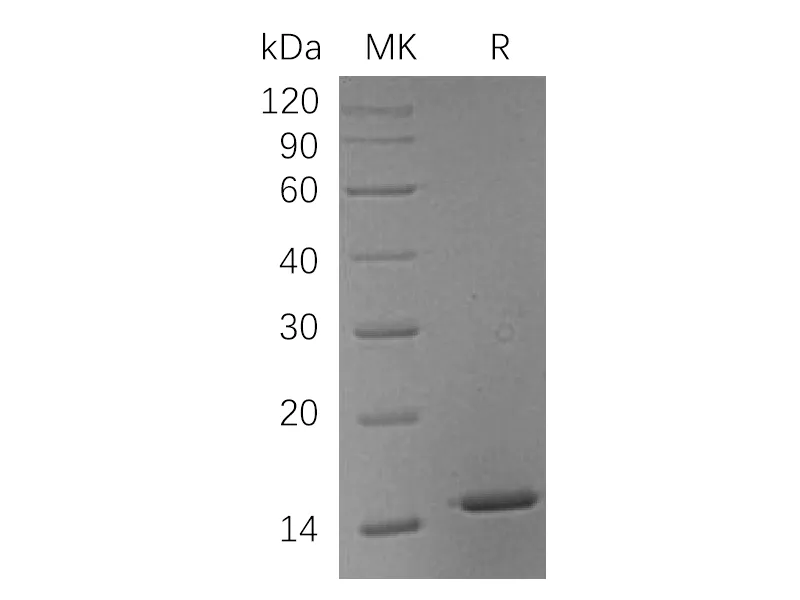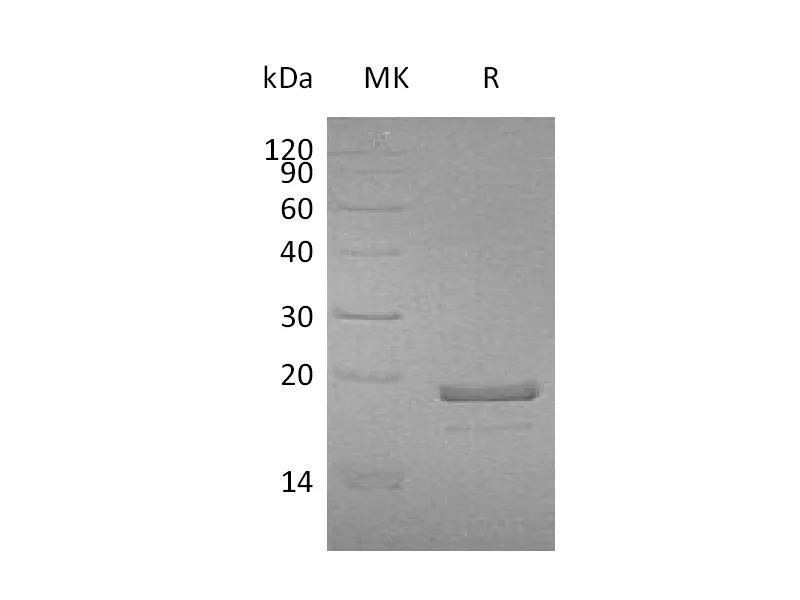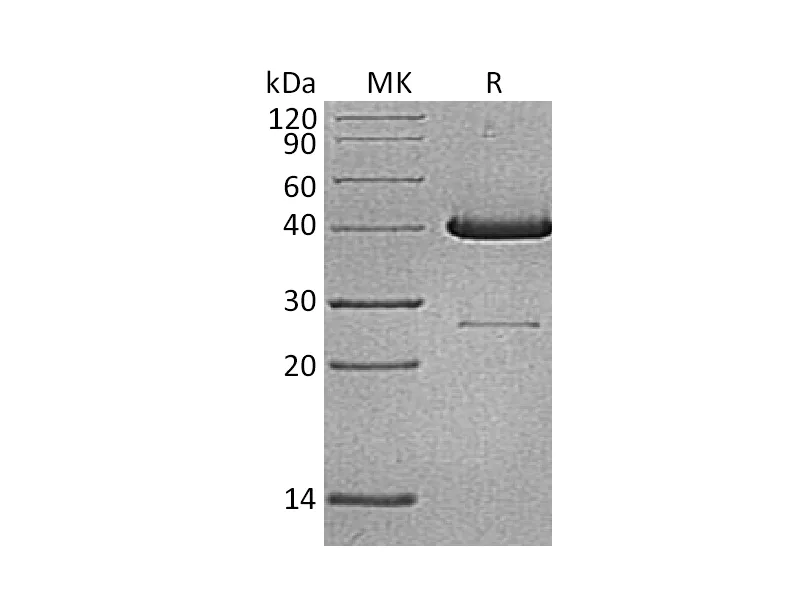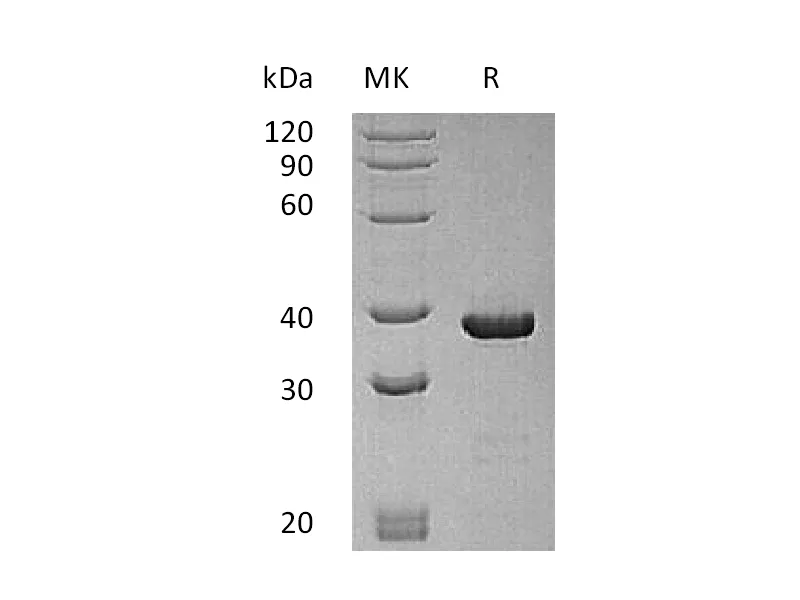| 产品名称 |
Recombinant Human B7-H4 (C-mFc) |
| 英文名称 |
B7-H4/VTCN1/B7 Homolog 4/B7S1/B7x |
| 纯度 |
Greater than 95% as determined by reducing SDS-PAGE |
| 内毒素 |
<1 EU/µg as determined by LAL test. |
| 蛋白构建 |
Recombinant Human B7 Homolog 4 is produced by our Mammalian expression system and the target gene encoding Phe29-Ala258 is expressed with a mouse IgG1 Fc tag at the C-terminus. |
| Accession |
Q7Z7D3 |
| 表达宿主 |
Human Cells |
| 种属 |
Human |
| 预测分子量 |
51.9 KDa |
| 制剂 |
Lyophilized from a 0.2 μm filtered solution of PBS, pH 7.4. |
| 运输方式 |
The product is shipped at ambient temperature.Upon receipt, store it immediately at the temperature listed below. |
| 稳定性&储存 |
Store at ≤-70°C, stable for 6 months after receipt.Store at ≤-70°C, stable for 3 months under sterile conditions after opening. Please minimize freeze-thaw cycles. |
| 复溶 |
Always centrifuge tubes before opening.Do not mix by vortex or pipetting.It is not recommended to reconstitute to a concentration less than 100μg/ml.Dissolve the lyophilized protein in distilled water.Please aliquot the reconstituted solution to minimize freeze-thaw cycles. |
| 分子别名 |
| B7S1; B7x; Vtcn1; B7h.5; B7-H4; B7H4T-cell costimulatory molecule B7x; B7S1VCTN1; B7XPRO1291; FLJ22418; Immune costimulatory protein B7-H4; Protein B7S1; T cell costimulatory molecule B7x; V-set domain containing T cell activation inhibitor 1; V-set domain-containing T-cell activation inhibitor 1 |
| 背景介绍 |
| B7 Homolog 4 (B7-H4) is glycosylated member of the B7 family of immune costimulatory proteins. Mature human B7-H4 consists of a 235 amino acid (aa) extracellular domain (ECD) with two Ig-like V-type domains, a 21 aa transmembrane segment, and a 2 aa cytoplasmic tail. It is widely expressed, including in kidney, liver, lung, pancreas, placenta, prostate, spleen, testis and thymus. B7-H4 negatively regulates T-cell-mediated immune response by inhibiting T-cell activation, proliferation, cytokine production and development of cytotoxicity. When expressed on the cell surface of tumor macrophages, plays an important role, together with regulatory T-cells (Treg), in the suppression of tumor-associated antigen-specific T-cell immunity. It also involved in promoting epithelial cell transformation. |
注意事项
本司产品仅用于科研,不用于临床诊断和治疗




